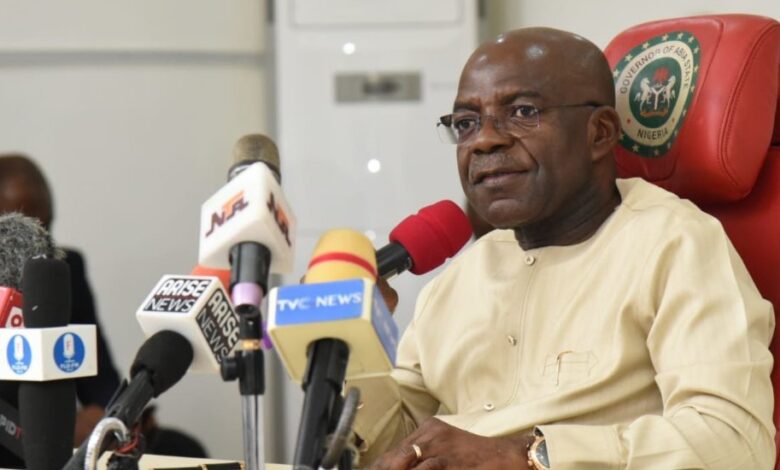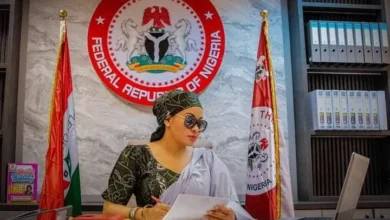Abia Civil Service Commission Debunks Alleged Sale Of Health Worker Recruitment Slots

(DDM) – The global observance of World Pharmacists Day on 25 September has once again drawn attention to the lingering neglect and marginalization of pharmacists within Nigeria’s healthcare structure.
This year’s theme, “Think Health, Think Pharmacist,” was not just an inspiring slogan but a wake-up call to re-evaluate how the nation treats one of its most indispensable health professionals.
Diaspora Digital Media (DDM) gathered that while pharmacists remain among the most accessible and trusted healthcare providers, many continue to face systemic discrimination, professional downgrading, and inequitable treatment that not only undermine their status but also jeopardize patient safety.
The Pharmaceutical Society of Nigeria (PSN), through its Lagos State chapter, marked the day with a strong message highlighting the critical challenges pharmacists endure.
According to the PSN, these obstacles threaten both professional integrity and public health, despite pharmacists’ pivotal role in ensuring safe and effective medicine use.
Similarly, the Association of Community Pharmacists of Nigeria (ACPN) lamented the consistent exclusion of pharmacists from health policy planning and decision-making.
The association described this as “unjust and dangerous,” stressing that such marginalization denies patients crucial support at the primary care level.
The Consultant Pharmacists Association of Nigeria (CPAN) has also been vocal about inequalities within the sector. Its interim chairman, Dr. Kingsley Amibor, recently condemned the deliberate downgrading of consultant pharmacists by certain hospital administrators and criticized the 50 percent pay increase awarded to physicians over pharmacists in a recent salary relativity exercise.
Amibor argued that such practices do not foster teamwork, fairness, or equity but rather deepen mistrust and widen divisions in an already fragile healthcare system.
CPAN’s ongoing demand for a single spine salary structure, which would harmonize remuneration across all healthcare professions, is not merely a financial plea but a call for justice and recognition of pharmacists’ essential contributions.
The issue, however, is not limited to Nigeria.
The International Pharmaceutical Federation (FIP) has repeatedly warned against sidelining pharmacists globally.
Its president, Paul Sinclair, cautioned that “pharmacy without the pharmacist is a risk to health,” adding that it compromises the quality and safety of care and erodes public confidence in healthcare systems.
Sinclair emphasized that excluding pharmacists as a cost-saving measure is “a false economy” that ultimately endangers lives, fuels antimicrobial resistance, and increases long-term healthcare costs.
“We are addressing what might be one of the most critical issues of our time,” he said, “safeguarding health by investing in qualified pharmacists, even in times of financial turbulence.”
In Nigeria, the importance of pharmacists extends far beyond dispensing medicines.
They serve as counsellors, educators, and frontline defenders against counterfeit drugs, which the World Health Organisation estimates make up 10–30 percent of medicines in circulation across the country.
In underserved rural areas, where the doctor-to-patient ratio is an alarming 1:10,000 (far below the WHO’s 1:600 recommendation), pharmacists are often the only qualified healthcare providers available to patients.
They play vital roles in vaccination drives, public health campaigns, chronic illness management, and medicine safety education, functions that form the backbone of preventive healthcare and community wellness.
Experts say that if Nigeria is to achieve a sustainable and inclusive health system, policymakers must take deliberate steps to address existing inequalities.
This includes implementing the single spine salary system, filling vacant pharmacist positions across government hospitals, and ending the institutional downgrading of the profession.
But stakeholders agree that reform cannot come from government alone. Physicians, hospital administrators, NGOs, and international agencies must embrace pharmacists as equal partners rather than subordinates.
Healthcare, they say, is not a solo performance but a collaborative symphony in which every professional plays a vital note.
Ultimately, World Pharmacists Day must become more than a ceremonial observance.
It should mark a turning point in Nigeria’s journey toward health equity, where pharmacists are finally given their rightful recognition as the guardians of safe, effective, and affordable healthcare for all.
Post Views: 57





